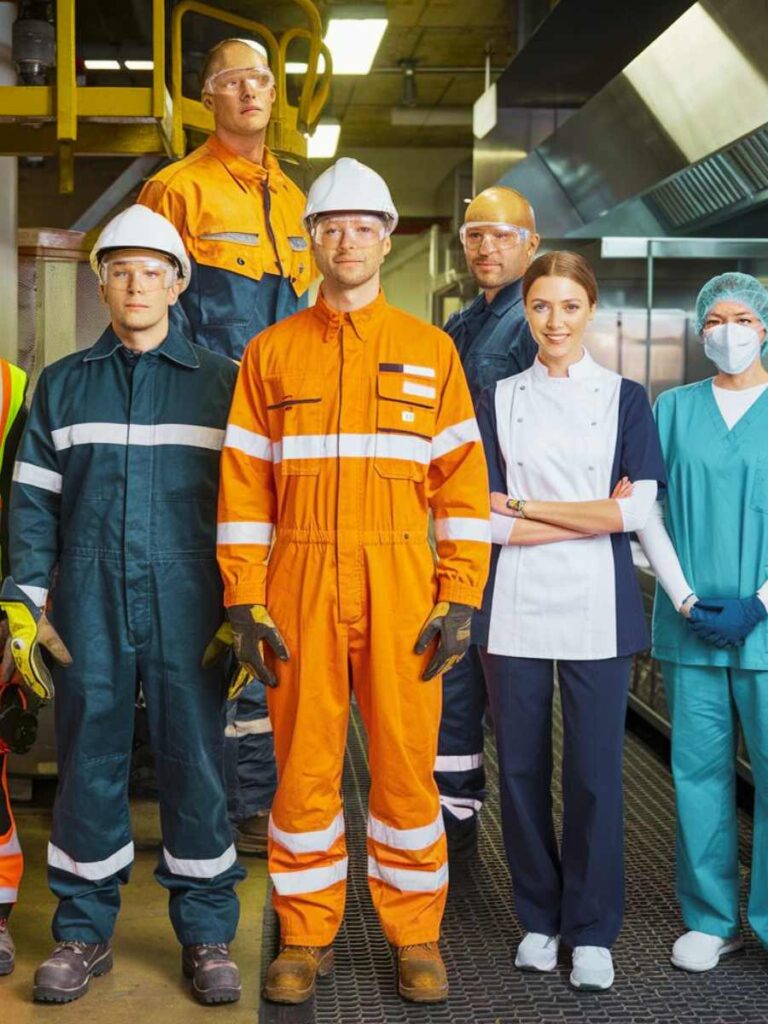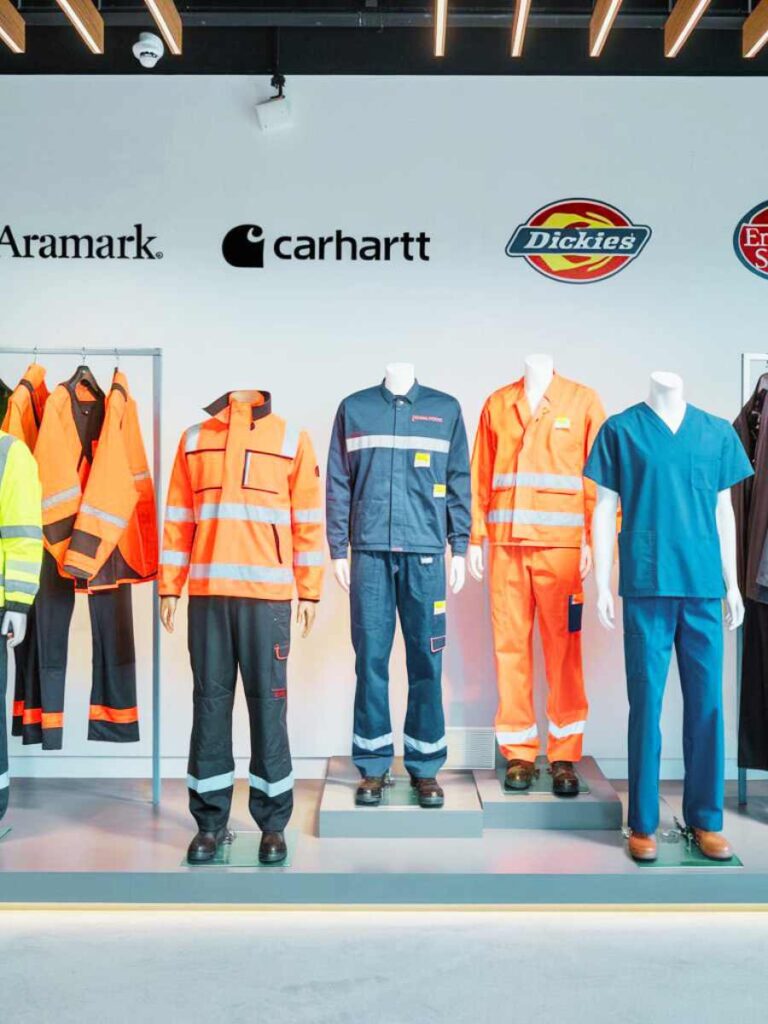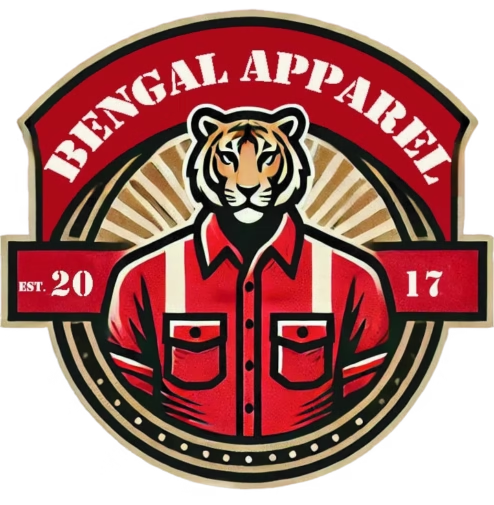When it comes to sourcing durable workwear, two countries often come into the spotlight: India and Bangladesh. Both countries have strong textile industries, skilled labor, and growing reputations in global garment exports. But for businesses looking to find the best country for workwear, especially for industrial use, choosing between India and Bangladesh can be a tough decision.
In this blog, we’ll dive deep into the comparison of India and Bangladesh based on quality, cost, fabric, production capabilities, sustainability, and delivery timelines. By the end, you’ll have a clear idea of which country is the best match for your workwear needs in 2025.
Why Choosing the Best Country for Workwear Matters
Durable workwear is essential for employees who work in construction, oil & gas, factories, maintenance, and other physically demanding jobs. These garments must:
Last through tough conditions
Provide comfort and protection
Meet industry safety standards
Represent the company’s brand professionally
That’s why choosing the right country for sourcing this clothing is critical for business success.
A Quick Overview: India vs Bangladesh
| Feature | India | Bangladesh |
|---|
| Labor Cost | Medium | Low |
| Textile History | Very Strong | Strong |
| Export Volume | High | Very High |
| Sustainability Focus | Growing | Strong |
| MOQ Flexibility | Moderate | High |
| Specialization | Custom uniforms, embroidery | Durable industrial workwear |
1. Cost of Production
Bangladesh
One of the biggest reasons global buyers prefer Bangladesh is low-cost production. Thanks to lower labor wages and large-scale manufacturing setups, prices per unit can be 20–30% cheaper than in India. This is especially helpful when you’re ordering in bulk.
India
India is also cost-effective, but not as cheap as Bangladesh. Labor wages are slightly higher, and production facilities are often smaller in scale. However, the cost is still reasonable compared to Western countries.
Winner: Bangladesh – Ideal for budget-conscious buyers.
2. Fabric & Material Sourcing
India
India has a long history in textiles. It grows its own cotton and has a wide selection of natural and blended fabrics like:
Cotton
Poly-cotton
Twill
Denim
Canvas
This means Indian manufacturers have better control over fabric quality and can offer custom blends based on buyer needs.
Bangladesh
While Bangladesh does not grow its own cotton, it imports high-quality fabric from India, China, or Turkey. Many factories also work closely with top mills to ensure durability and compliance.
Winner: India – Offers more control and variety in fabric sourcing.
3. Quality & Workmanship
Bangladesh
Over the last 10 years, Bangladesh has greatly improved its quality control systems. Factories use modern machines, international sewing standards, and follow ISO, CE, and ANSI certifications for durable workwear.
It’s also common to see strong double-stitching, bartacking, and reinforced pockets in Bangladeshi industrial uniforms.
India
Indian factories are known for excellent craftsmanship, especially in tailoring and finishing. If you’re looking for uniforms that are not just strong but also aesthetically clean, India is a top choice. The country also excels in custom embroidery, logo printing, and stylish cuts.
Winner: Tie – Bangladesh leads in rugged durability; India shines in design and detail.
4. Production Capacity & Lead Times
Bangladesh
Home to some of the world’s largest garment factories, Bangladesh can handle huge volumes. Whether it’s 10,000 or 100,000 pieces, the country can deliver it within short timelines due to its efficient production lines and export zones.
India
India’s garment sector is more scattered, with many medium and small-sized factories. While quality is high, the lead time may be longer, especially for bulk orders.
Winner: Bangladesh – Better for large orders and faster delivery.
5. Minimum Order Quantity (MOQ)
Bangladesh
Many Bangladeshi manufacturers are flexible with low MOQ. Some offer custom production for as little as 500–1000 pieces per style, especially if the buyer is serious about long-term business.
India
India typically has slightly higher MOQs, often starting from 1000–2000 pieces per style. However, they are also open to negotiation depending on the design complexity and repeat orders.
Winner: Bangladesh – More suitable for startups and smaller importers.
6. Sustainability and Ethical Manufacturing
Bangladesh
Bangladesh is one of the global leaders in green garment production. Over 200 factories are certified by LEED (Leadership in Energy and Environmental Design). Many brands trust Bangladesh for ethical labor practices, waste management, and eco-friendly production.
India
India is catching up in this space. There are many GOTS-certified factories and a growing number of solar-powered units. However, the nation still faces significant challenges in achieving sustainable large-scale manufacturing.
Winner: Bangladesh – Better track record in sustainable workwear production.
7. Customization & Branding
India
India is known for high-quality customization. Embroidery, logo printing, patchwork, dyeing, and styling are done with precision. If your brand needs a fashion-forward or unique look, India is the right place.
Bangladesh
While Bangladesh also offers branding services, they are more basic and focused on function. The goal is high volume and strength over advanced customization.
Winner: India – Best for fashion-oriented or brand-driven workwear.
8. Logistics and Shipping
Bangladesh
Thanks to Chittagong Port and streamlined export zones, Bangladesh offers reliable shipping to the USA, Canada, UK, EU, and Australia. Air and sea freight options are both widely available.
India
India also has well-connected ports in Mumbai, Chennai, and Kolkata. However, inland transport may cause minor delays in certain regions.
Winner: Tie – Both countries are strong in global shipping.
Final Verdict: Which is the Best Country for Workwear?
Here’s a quick side-by-side comparison:
| Category | Winner |
|---|---|
| Cost | Bangladesh |
| Fabric Variety | India |
| Durability | Bangladesh |
| Design Quality | India |
| Production Volume | Bangladesh |
| MOQ Flexibility | Bangladesh |
| Branding/Embroidery | India |
| Sustainability | Bangladesh |
So, who wins the title of the “Best country for workwear” in 2025?
👉 If your priority is affordable, rugged, and large-scale industrial workwear — then Bangladesh is the best country for workwear.
👉 If you need stylish, customizable, and detailed uniforms for restaurants, hotels, or healthcare — then India is your ideal partner.
Frequently Asked Questions (FAQs)
Q1: Which country makes the most durable workwear?
Answer: Bangladesh specializes in durable, heavy-duty workwear designed for construction and industry. It focuses on strength and safety.
Q2: Is India a good option for embroidered or custom uniforms?
Answer: Yes, India is excellent for customized uniforms with detailed embroidery and brand styling.
Q3: Which country has lower production costs for workwear?
Answer: Bangladesh has some of the lowest production costs in the world, especially for large quantities.
Q4: Can small businesses order from these countries?
Answer: Yes. Bangladesh is particularly friendly to small and mid-size importers with flexible MOQs.
Conclusion
Both India and Bangladesh are global leaders in workwear manufacturing. However, they serve slightly different business needs. If you’re looking for the best country for workwear based on price, durability, and volume, Bangladesh is the top choice in 2025. But if design, customization, and fine details matter more, India is an excellent option.
Whichever country you choose, make sure the manufacturer understands your brand, safety requirements, and timeline goals. With the right supplier, you can build a strong and professional workwear line that supports your business for years to come.




